News
Does the home baking boom have longevity?
15 Mar 2022
After years of decline, home baking mixes experienced a boom during the Covid-19 pandemic. With the right positioning and claims, such as clean label and plant-based, brands can continue to leverage the trend for home baking.
For many people, baking during national lockdowns was a necessity as supply chain constraints made it difficult to obtain certain ready-baked staples, such as bread. However, many people also embraced home baking as a way to pass the time, engage in a ‘hands-on’ activity, and feel creative.
Baking mixes in the UK grew by £26 million (43.6% year-on-year growth) in the year ending November 2020, according to Kantar data.
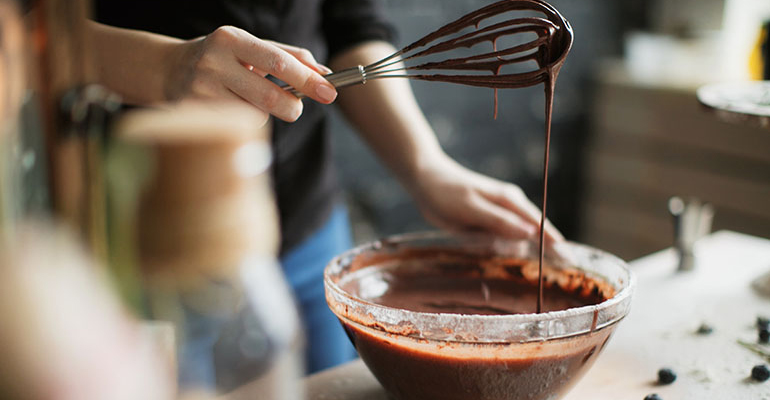
Writing in The Conversation, Stephanie Baines, lecturer in psychology at Bangor University, says the craze for home baking – and for baking banana bread in particular – at the height of the Covid-19 pandemic had “strong psychological roots” linked to nostalgic childhood memories and cravings for comfort food during stressful times.
“The way we learn to associate a stimulus (banana bread) with its outcome (pleasure or satiation) means we actually receive the reward response, a burst of dopamine, in anticipation from sensory cues, rather than during consumption. In our modern environment, these cues, such as Instagram posts, might drive our food-seeking behaviour even more strongly than signals of hunger,” she writes.
“The act of baking might be especially potent because our olfactory cortex is highly interconnected with regions processing emotion (amygdala) and memory (hippocampal cortex). Smell can evoke vivid autobiographical memories and emotions associated with them.”
Banana bread baking mixes for back-to-work consumers
With Covid-19 numbers now mostly under control around the world and people back at work, consumers have less time to dedicate to scratch baking and baking mixes may be able to find their place.
A number of brands are looking to leverage the recent trend for banana bread with baking mixes.
US female-led startup GoNanas makes a 'healthified' vegan banana bread mix, and was selected to take part in the 2022 cohort of confectionery and snack giant Mondelez’s startup programme, CoLab.
Explaining what attracted it to the startup. Mondelez said: “As banana bread became increasingly popular during the pandemic, [GoNanas] co-founders Morgan Lerner and Annie Slabotsky saw the opportunity to modernize the classic comfort food with a delicious banana bread mix that is allergen friendly – vegan, gluten free, and nut free.”
German company Just Spices recently launched a banana bread spice mix that can also be used in muesli, porridge, granola, yoghurt, and other sweet baked goods.
Clean label ingredient lists remain important in Europe
In Europe, clean label considerations continue to be important for consumers, particularly for those who enjoy cooking and baking at home. According to a Mintel survey, one-quarter of UK adults who bake at home say they do so because it helps them control what goes into their food.
“The appeal of home baking relates to the consumer interest in controlling the ingredients and customising recipes,” says Mintel’s senior innovation analyst, Amrin Walji. “But for sweet bakery, the multi-functional dependency on sugar is inevitably conflicting with consumers' wider concerns about excessive sugar consumption. As a result, many home bakers are exploring the viability of alternative sweeteners.”
Erythritol is the most popular sweetener in home baking mixes, accounting for 34% of launches in Europe in 2021, followed by stevia which accounted for 19%, according to Mintel, which says the polyol likely benefits from a natural positioning while also having fewer aftertaste issues than stevia.
Plant-based claims are also on the rise within the baking premix category. In Germany,Baetter Baking launched a carrot cake made with rice flour, coconut blossom sugar, buckwheat, cinnamon and ginger.
Related news

Oat Barista: Innovation for game-changing beverages
20 Nov 2025
Oat Barista is a clean label, sustainable, and innovative drink base specifically designed to create the perfect foam in one single ingredient.
Read more
Empowering innovation in fortification and colouration
13 Nov 2025
Divi’s Nutraceuticals offers a large portfolio of innovative, high-quality ingredients for foods, beverages, and supplements, with bespoke solutions and expert support for product success.
Read more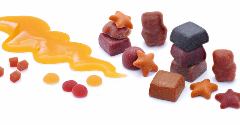
From fruit to functional solutions: Meet Paradise Fruits at Fi Europe in Paris
13 Nov 2025
Paradise Fruits Solutions and Paradise Fruits Health will showcase their combined expertise in delivering innovative, fruit-based solutions to the food and beverage industry at the upcoming Fi Europe trade show (2-4 December 2025, Paris).
Read more
New UPF standard hoped to offer consumers ‘coherence and clarity’
10 Nov 2025
Ingredients companies are being urged to enter “a new era of partnership and innovation” following the launch of the industry’s first non-UPF verification scheme.
Read more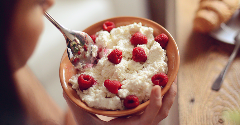
Cottage cheese makes a comeback as consumers call for cleaner labels
6 Nov 2025
From ice cream to dips and ready meals, cottage cheese is experiencing a renaissance as a high-protein, clean ingredient for health-conscious consumers.
Read more
Bord Bia presents Irish dairy ingredient suppliers at Fi Europe
6 Nov 2025
Dairygold Co-operative Society, The Carbery Group, and Ornua Co-operative: Meet with sustainable producers of Irish dairy ingredients at Food ingredients Europe 2025, Hall 7.2 Stand M18.
Read more
Shorter drying time, sweeter success!
30 Oct 2025
Curious about cost-effective, sustainable and delicious candy making? Stefan Wessel reveals how Avebe’s solutions reduce drying time and energy use by up to 50%.
Read more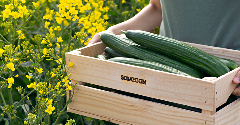
Could plant-based protection replace plastic packaging?
29 Oct 2025
Swedish foodtech company Saveggy has launched an additive-free plant-based protection for cucumbers, offering a waste-free packaging solution for fruit and vegetables.
Read more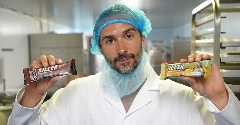
Will Wicks’ Killer Bar harm the protein bar category?
23 Oct 2025
Joe Wicks’ deliberately dangerous protein bar is fuelling anti-UPF sentiment – but there are concerns that his messaging is misguided and could have unintended consequences.
Read more
Expanding boundaries in food & beverage innovation
23 Oct 2025
IMCD and FrieslandCampina Professional expand partnership to deliver Kievit® across EMEA, enabling brands to enhance quality and accelerate time-to-market for tomorrow’s food & beverage creations.
Read more